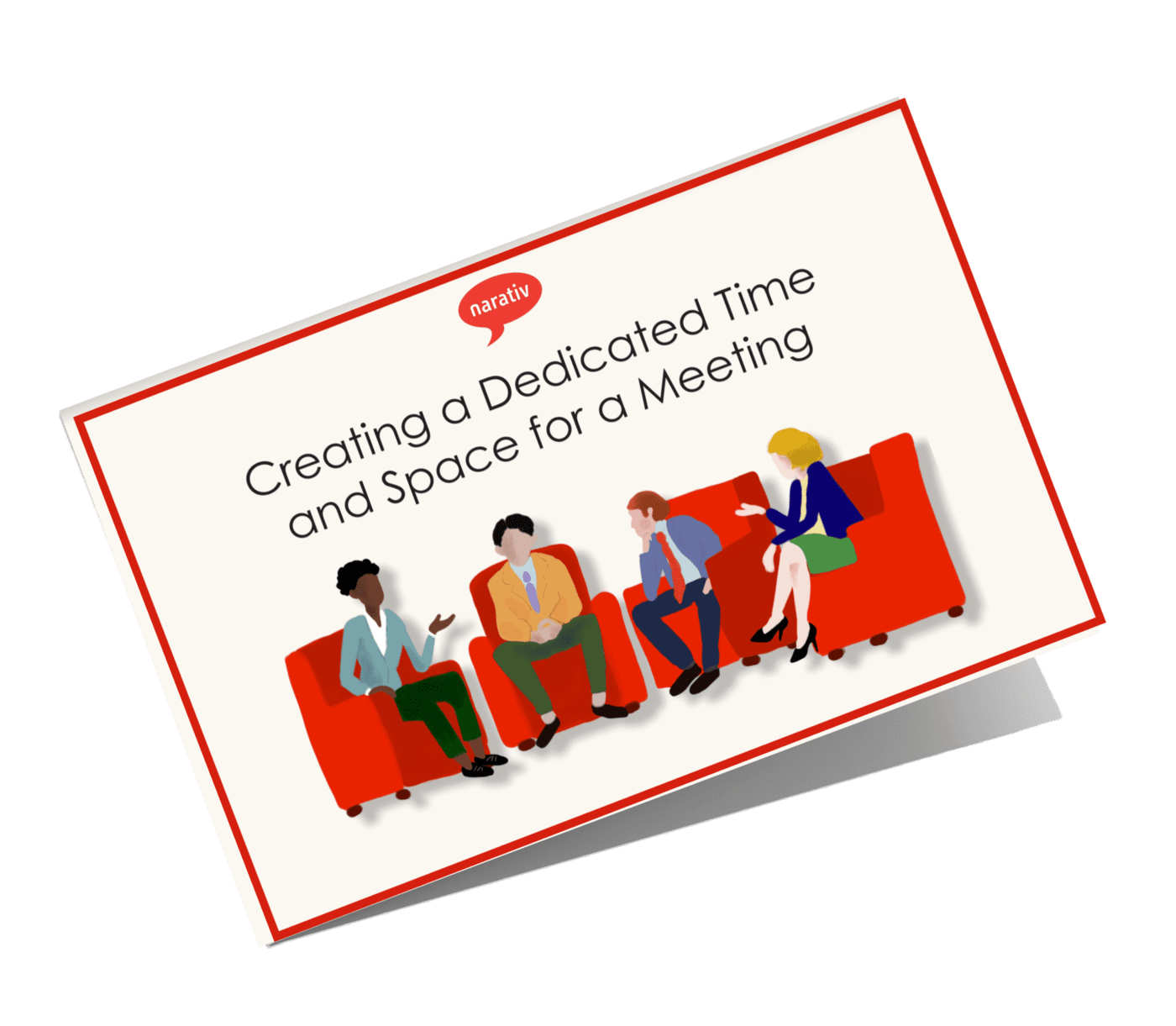On a recent episode of the Narativ Leadership Story Talks podcast, hosts Jerome and Julienne had the opportunity to speak with Amy Bach, founder and CEO of Measures for Justice, a criminal justice nonprofit that develops data tools and services that help communities—including the institutions that serve them—reshape the system.

During the episode, Amy and the hosts discussed how she found her way into the world of correcting injustice through data. They also talked about how storytelling has turned out to be vital to the mission of Amy’s company, and how the stories of real people give context to the data they collect to drive impactful change.
Amy’s Story: Small-Town Justice
Amy’s career was a bit of a winding path to her final destination of justice-oriented data collection. She started attending college to study literature and journalism, which led her to work for an Arizona newspaper and eventually a law magazine. Her work with the magazine led to her decision to go to law school, which she pursued for three years also working as a judge’s clerk.
After her clerkship, Amy decided to make a return to journalism by doing a fellowship with The Nation magazine. It was during this fellowship that she went to Quitman County, Mississippi, where she had the experience that seeded the idea for her book, Ordinary Injustice, and eventually her organization.
Amy described a small town with crumbling sidewalks where she was surprised to find the courthouse was mostly empty, which she knew was strange for a town like this. After asking the court clerk, Ms. Wiggs, where all the people were, she was shown a list of all the people who were supposed to show up in court but hadn’t done so. Curiosity piqued, Amy became determined to figure out why so many of these cases were falling through the cracks. Ms. Wiggs’ list became the anchor in her search for answers.
Ordinary Injustice
To illustrate the impact of her findings during her initial research, Amy told a story about a young mother whose case had ended up in the courthouse file of stagnant cases. This woman had left her boyfriend after he had brutally beaten her with a tire iron in front of her two young children, leaving her with disabling injuries. The case had never been prosecuted.
After learning about this, Amy dug into the courthouse records and realized the county prosecutor hadn’t prosecuted a domestic violence case in 21 years—a fact that the prosecutor himself seemed surprised by.
As she looked deeper into the situation, Amy learned the long oversight on domestic violence cases had happened because the county prosecutor routinely prioritized less complicated cases while saving the more difficult ones for “later.” However, with so many cases passing over his desk, “later” had now stretched on for decades.
This story is an example of exactly what Amy means by “ordinary injustice.” These are minor oversights in the legal system that end up causing real harm to real people.
The Power of Storytelling in Measuring Justice
Amy knew the best way to fix problems in the court system was to make those problems visible—and visibility requires data. After uncovering the issue in the Quitman County courts, she began getting experts involved to help her collect similar court data from other places in the country.
The data she gathered gave insight into what she now realized were widespread issues in courts all across the country, as well as clear statistics on the types of cases and demographics that were being underserved. This sort of data is crucial in making changes to any system, but sparking transformation is not as simple as just presenting the data.
This is where stories like the one about the young mother become vital. Storytelling brings the data to life and shows the human impact the data represents. Amy shared with Jerome and Julienne that she relies on stories like this one to help the public truly understand the pain caused by ordinary injustice so more people become invested in affecting change.
Overcoming Opposition with Stories
Storytelling comes in handy when countering resistance as well. At one point in the episode, Amy and the hosts discussed the growing pains that came with getting a foothold for Measures for Justice.
As Amy began presenting her data to more people within the justice system, she began getting a lot of pushback from judges who were resistant to the measures her organization was proposing for implementing change.
At one point, letters were sent around by a network of judges disparaging Measures for Justice. Amy recalls being incredibly frustrated, but she was reassured by her husband. He reminded her that because her work was so relevant to the necessity of change, she had touched a nerve with law professionals who didn’t want to have their routines disrupted by the call for them to change old habits.
Amy credits the power of storytelling with helping her combat the narrative people in power were presenting to disparage her work. In the end, the stories of the people who needed the legal system to change won out and helped Measures for Change keep the public momentum it needed to flourish.
Just Keep Swimming
As he does with every podcast guest, toward the end of the episode Jerome asked Amy to share an experience that shaped her perspective and made an impact on the way she approaches problems.
Rather than looking back on one of her own early life experiences, Amy opted to share a story about her son and swimming.
Amy’s 15-year-old son is a great competitive swimmer, but he first began swimming as a young child because of a lack of core strength that caused him to struggle to keep up with his peers. As a parent, Amy worried at first because of how much he struggled to even tread water, but little by little he developed the strength he needed.
She said her son’s gradual progress made a huge impact on her approach to many things in her life. She explained that with Measures for Justice she has had similar “parenting” moments that required seeding something small and allowing it to take its time and build up its own strength so it can flourish and bring about the right sort of change.
Combatting Ordinary Injustice Through Storytelling
There is much work to be done in correcting some of the problems that lead to injustices in our legal system. However, Amy is confident that the more people leverage the data and systems Measures for Justice provides, the easier it will become to convince the right people that change is needed. And as long as she has data to present, Amy will continue to use stories to bring it to life.
If you would like to learn more about Amy Bach, her book, or her work with Measures for Justice, you can visit her here.
If you’d like to learn more about how to harness the power of storytelling to enhance your leadership skills, check out our new 3-part “Leading with Story” workshop series, coming this fall, September 7, 14, and 21.



